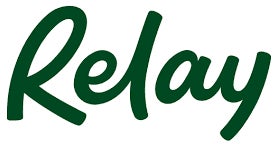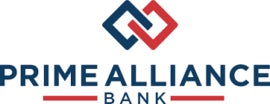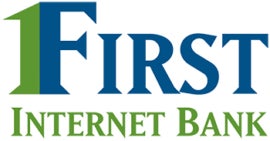Best Savings Accounts for Businesses
- Best overall bank for business savings accounts: Live Oak Bank
- Best business savings for full banking services and branch access: Capital One
- Best online savings with high-yield and FDIC insurance: Axos Bank
- Best automated business savings account: Relay
- Best digital bank for tiered APY business savings: Prime Alliance
- Best high-yield savings and financing options: TAB Bank
- Best business savings with ATM surcharge rebates: First Internet Bank
Business savings accounts can offer high interest rates to help grow your company’s funds while providing a safety net for unexpected expenses. The best business savings accounts should feature competitive interest rates, low fees, easy access to financial products, and robust online and mobile banking options. Here is a list of our seven best business savings accounts.
Best business savings accounts quick comparison
The table below displays the key factors we assessed for the seven best business savings accounts.
Live Oak Bank: Best overall business savings account
Our rating: 4.05 out of 5
Live Oak Bank is a reliable online-only bank with a competitive APY of 3.80%. It only requires a minimum deposit of 1 cent to start earning interest. With no mandatory opening deposit or monthly fees, it presents an excellent option for businesses seeking a high yield on their excess funds. Additionally, Live Oak Bank provides up to $10 million in FDIC insurance coverage through an insured cash sweep account.
Why I chose it
Live Oak Bank’s Business Savings account is my best overall high-yield savings account. It’s an excellent option for small businesses because, unlike many other providers offering tiered rates, it doesn’t require a minimum balance to earn interest. Additionally, Live Oak Bank provides business CDs with attractive fixed returns: up to 4.30% for a 1-year term, 4.20% for a 9-month term, and 4.10% for a 6-month term.
The bank also offers business checking accounts, Small Business Administration (SBA) loans, and commercial loans.
Monthly fees
- Live Oak Bank Business Savings: $0.
Features
- 3.80% APY.
- 1 cent balance to start earning interest.
- High-yield CDs.
- Integrates with QuickBooks.
- Up to $10 million in FDIC coverage through Insured Cash Sweep (ICS).
- Three business checking options.
- SBA loans and commercial lending.
- Personalized customer service from a North Carolina-based team.
Pros and cons
| Pros | Cons |
|---|---|
| No monthly fees for savings. | Cash deposit is not allowed. |
| No minimum balance is required. | $19 fee for sending wire transfers. |
| High interest for savings and short-term CDs. | No debit card is issued for savings accounts. |
Capital One: Best business savings for full banking services and branch access
Our rating: 4.03 out of 5

Capital One is one of the largest traditional banks in the U.S. and provides both digital and in-person banking services. It offers a Business Advantage Savings account with a promotional interest rate of up to 4.0% for the first three months for new savings account holders.
After the promotional period ends, the account will earn a variable interest rate that is subject to change. There is no minimum balance required to earn interest, but the promotional APY will depend on your account balance
If your balance is $10,000 to $10 million, you will receive a 4.0% promo APY rate, while balances under that will receive a 0.25% APY rate.
.
Why I chose it
Capital One is featured on our list of the best business savings accounts because it provides access to full banking services and physical branches. Its generous monthly cash deposit limit of $10,000 is particularly beneficial for cash-reliant businesses. Additionally, you receive a free debit card that can be used at over 2,000 Capital One ATMs. There are also multiple options for opening a savings account.
The account has a monthly fee of $3, which can be easily waived, and is compatible with several popular business software programs, including QuickBooks, Xero, Expensify, and Stripe. You can also link your savings account to your checking account for free overdraft protection. In addition to savings accounts, Capital One offers a comprehensive range of business products, including CDs, checking accounts, credit cards, lending options, and merchant services.
Monthly fees
- Capital One Business Advantage Savings: $3; waived by meeting a $300 average monthly balance.
Features
- Promotional interest rate (up to 4.0%), guaranteed for three months based on balances
. - Six free monthly withdrawals.
- Free debit card.
- $10,000 monthly cash deposits.
- Overdraft protection.
- Certificates of deposit (CDs) available.
- Open an account online, via a representative or local branch.
- Over 700 branches and 2,000 ATMs.
Pros and cons
| Pros | Cons |
|---|---|
| Guaranteed promo rate of up to 4.0% APY (first three months). | Limited branches. |
| Highly-rated mobile app. | A variable rate is given after the promo period. |
| Over 70,000 fee-free ATMs, including MoneyPass and Allpoint ATMs. |
Axos Bank: Best online savings with high-yield and FDIC insurance
Our rating: 4.02 out of 5

Axos Bank offers two savings options for businesses: Business Savings and Business Premium Savings. I recommend the Business Premium Savings account because it does not have a monthly fee or require a minimum balance or initial deposit. With this account, you get 20 free transactions monthly. Additionally, Axos provides various other business banking products, including checking accounts, CDs, lending options, merchant services, and payroll services.
Why I chose it
Axos Bank’s Business Premium Savings is one of my top picks for the best high-yield business savings accounts, offering an APY rate of 4.01%. If your business funds exceed $250,000, I recommend using Axos Bank’s Insured Cash Sweep (ICS) through IntraFi® Network DepositsSM to access up to $250 million in FDIC protection. Read our article on FDIC insurance for business accounts to learn how it works.
Monthly fees
- Axos Business Savings: $5; waived by meeting a minimum $2,500 average daily balance.
- Axos Business Premium Savings: None.
Features
- Up to $375 bonus for new Business Premium Savings users.
- 0.20% interest for Business Savings.
- Up to 4.01% for Business Premium Savings.
- FDIC insurance of up to $250 million via ICS.
- Money market accounts and CDs.
- SBA loans and commercial lending.
Pros and cons
| Pros | Cons |
|---|---|
| High APY. | Online-only bank. |
| Welcome bonus for eligible new users. | Only 20 free monthly transactions. |
| No monthly fee or initial deposit for Business Premium Savings. | $1,000 opening deposit for Business Savings. |
Relay: Best automated business savings account
Our rating: 3.99 out of 5

Relay is a fintech company that offers a business savings product featuring tiered interest rates and no monthly fees, balance requirements, or opening deposits. When you open a business checking account, a savings account is automatically created for you. You can have up to two savings accounts, with an APY of up to 3.0%
Balances from $1 to $50,000 earn 1% interest.
Balances from $50,000 to $250,000 earn 1.5% interest.
Balances from $250,000 to $1 million earn 2% interest.
Balances over $1 million earn 3% interest.
, depending on your account balances.
Why I chose it
I included Relay in our list of the best business accounts because it allows you to automatically transfer reserve funds from a checking account to generate earnings. The higher your balance, the more interest you will earn. While you cannot deposit cash directly into your savings account, you can make fee-free deposits through your checking account at Allpoint ATMs and then transfer the funds to your savings account.
Monthly fees
- Relay Business Savings: $0.
Features
- Up to 3% APY for Relay business savings accounts.
- Allowed to open two savings accounts.
- Shared account access.
- AI chatbot, including email, chat, and phone support.
- Integrates with QuickBooks, Xero, Gusto, and Plaid.
- Compatible with PayPal, Stripe, Square, Wise, and Venmo.
- Relay Visa® Credit Card is available by invitation.
- Can set up a checking account’s maximum balance to auto-sweep excess funds to savings.
Pros and cons
| Pros | Cons |
|---|---|
| No monthly fee, opening deposit, or required balance. | Cannot withdraw cash from savings, need a Relay business checking account to open. |
| Tiered APY. | Funds cannot be accessed through a debit card, they need to transfer to a checking account. |
| Fee-free incoming wire transfers. |
Prime Alliance Bank: Best digital bank for tiered APY business savings
Our rating: 3.94 out of 5

Prime Alliance Bank is primarily an online bank, though it also has a branch in Utah. Its Business Savings account is considered one of the best high-yield savings accounts, offering an APY of up to 4.25% depending on your balance. If your balance is under $100,000, you earn 3.85%. For balances between $100,000 and under $200,000, the rate is 4.05%. Meanwhile, balances of $200,000 and above earn 4.25%.
Additionally, this account does not charge a monthly fee or require an opening deposit or a minimum balance. You can also access attractive money market accounts and certificate of deposit (CD) rates.
Why I chose it
I appreciate Prime Alliance Bank’s tiered APY rates, which are among the highest available; this structure allows you to effectively grow your reserve funds. There are no limits on deposits, and all transactions are fee-free. However, you get only six monthly withdrawals and transfers; exceeding this limit incurs a fee of $10 for each additional transaction.
The good news is that in-person withdrawals — whether made through a bank teller, phone, ATM, or mail — do not count toward this limit, providing more flexibility for customers.
Monthly fees
- Prime Alliance Bank Business Savings: $0.
Features
- Up to 4.25% APY, depending on balances.
- No initial opening requirement.
- Unlimited deposits.
- 6 withdrawal limit monthly.
- Checking, money market accounts, and CDs are available.
- SBA loans and real estate loans.
- Commercial lines of credit.
- Equipment lease financing.
Pros and cons
| Pros | Cons |
|---|---|
| No monthly fee. | A savings account cannot be opened online and requires emailing the bank. |
| No minimum balance is required. | No debit card issued. |
| Tiered APY. | Cannot deposit cash. |
TAB Bank: Best high-yield savings and financing options
Our rating: 3.28 out of 5

TAB Bank is an online bank that offers a variety of products, including savings accounts, money market accounts, CDs, checking accounts, and lending options. When you open a business savings account, you can earn an APY of 0.25% and enjoy the benefit of no monthly fees. To open an account, an initial deposit of $25 is required, and you only need to maintain a minimum daily balance of $1.
Why I chose it
TAB Bank offers a relatively lower interest rate than others on this list, but I included it since it provides a wide range of savings products, including high-yield money market accounts and CDs. One added advantage is that it does not limit users to only six free monthly transactions.
Additionally, TAB Bank offers various business lending options, such as accounts receivable (A/R) financing, asset-based lending, equipment financing, term loans, business lines of credit, and commercial real estate (CRE) loans.
Monthly fees
- TAB Bank Business Savings: $0.
Features
- 0.25% APY.
- $25 opening deposit.
- Integrates with Autobooks for invoicing.
- Customer service is available from Monday to Saturday.
- Checking, money market accounts, and CDs.
- Term loans and lines of credit.
- Accounts Receivable (A/R) financing and asset-based lending.
- Commercial real estate (CRE) loans and equipment financing.
Pros and cons
| Pros | Cons |
|---|---|
| No monthly fee. | No brick-and-mortar branches. |
| Full-service online bank. | No debit card issued. |
| $1 minimum balance to earn interest. | Cash deposits are not supported. |
First Internet Bank: Best business savings with ATM surcharge rebates
Our rating: 3.11 out of 5

First Internet Bank is another excellent online banking option. They offer a regular savings account with a monthly fee of $2, which is waived by maintaining a daily balance of $1,000. This account earns an APY of 0.91%, which is higher than the typical offerings of traditional banks.
First Internet Bank allows up to six free monthly withdrawals. Additionally, only sole proprietors can receive a debit card. The bank also provides a refund of up to $10 for third-party ATM surcharges.
Why I chose it
The interest rate for First Internet Bank’s regular savings account may not be as high as that of some other providers, but I think its monthly ATM fee rebates for transactions made at non-network ATMs are its competitive edge over others since this reduces fees. Additionally, the bank has received excellent ratings for its mobile app. You can also open a high-yield money market savings account and CDs alongside your regular savings account.
Monthly fees
- First Internet Bank Regular Savings: $2; waived by maintaining a minimum of $1,000 average daily balance.
Features
- 0.91% APY.
- $10 ATM surcharge rebates monthly.
- Transaction limit of 6.
- Money market accounts and CDs.
- Checking accounts available.
- SBA and CRE lending.
- Lines of credit and term loans.
- Customer support is available from Mondays to Saturdays.
Pros and cons
| Pros | Cons |
|---|---|
| Competitive interest. | ATM cards are available to sole proprietors only. |
| Highly rated mobile app. | $100 opening deposit. |
| Robust lending products. | Cash deposits are not accepted. |
Pros and cons of business savings accounts
Pros of a business savings account
- Earning interest: You can earn interest on your funds, helping your savings grow over time.
- Emergency protection: It provides a safeguard for your finances in case of emergencies.
- FDIC insurance: Your funds are protected by FDIC insurance, ensuring your money is safe.
- Financial separation: It helps keep your personal and business finances distinct.
Cons of a business savings account
- Variable interest rates: The interest rates can fluctuate, meaning your earnings may not be consistent.
- Limited withdrawals: There are restrictions on the number of withdrawals you can make.
- Temporary APY rate boosts: Any promotional APY increases may only last for a limited time.
- Minimum balance requirements: To earn interest, you often have to maintain a strict minimum balance.
How to select the best savings account for business
Before choosing the best savings account for business, it’s essential to consider the following factors.
1. Type of savings account
In addition to regular savings accounts, financial institutions offer money market accounts and CDs that provide higher yields. However, these options often have specific restrictions, such as higher initial deposit requirements and penalties for early withdrawals.
2. Fee structure
Financial providers typically charge standard account fees, which can vary significantly. These fees may include monthly maintenance fees, charges for excess transactions, cash deposit fees, initial deposit requirements, and ATM fees. It’s crucial to compare interest rates and account features among several providers to find the best high-yield business savings account.
3. Business needs
Different businesses have varying requirements. For example, companies that frequently make cash deposits may benefit more from an account at a traditional bank. Conversely, if your goal is to save for business investments, a high-yield account may be more suitable. However, if the account is primarily for operating expenses, it’s advisable to consider a business checking account with no monthly or transaction fees.
Common mistakes to avoid when opening a business savings account
When opening a business savings account, you can avoid common mistakes by being mindful of account fees and interest yields. It’s important to provide accurate information during the application process, as inaccuracies can lead to delays in approval. Additionally, don’t overlook other bank charges, such as dormancy fees, overdraft fees, and fees for using out-of-network ATMs, as these can accumulate over time.
Methodology
To determine if a business savings account qualifies for inclusion in our buyer’s guide, I thoroughly reviewed various providers’ websites and considered the following factors before assigning a rating for the best business savings accounts.
- Monthly fees and waiver conditions.
- APY rate offered.
- Minimum opening deposit.
- Required maintaining balances.
- ATM fees and transaction limits.
- Cash deposit options.
- Account features.
- Integrations with business software.
- Other business products and services available.
- Customer support availability.
- App ratings.
Frequently Asked Questions
What are the requirements to open a business savings account?
Similar to opening a business checking account, you will need to submit an employer identification number (EIN) or social security number (SSN) for sole proprietors, a fictitious name certificate, business formation and organization documents, business licenses, and a government-issued photo ID. You will also need to provide business information, including details about the owners and the percentage of ownership.
Can a business have a high-interest savings account?
Yes, businesses can utilize a high-interest savings account to grow their excess cash and allocate funds for future investments to expand their company.
Is it worth having a business savings account?
Absolutely, having a business savings account is valuable. It provides an easy way to set aside cash for future expenses, emergencies, and potential growth opportunities. Additionally, you can take advantage of the high interest rates available in the market for business savings accounts.
Which types of bank accounts are best for businessmen?
The best types of bank accounts for entrepreneurs are business checking and savings accounts. A business checking account allows you to deposit customer payments, withdraw funds for operational expenses, and pay suppliers. If you have extra funds, consider opening a high-yield business savings account to earn more interest on your savings.

